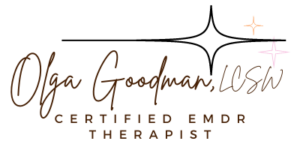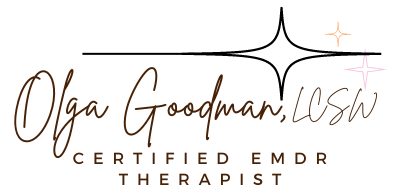Therapy for adopted adults in San Diego & El Cajon, CA. In-person & online.
Reclaim your story. Find a sense of belonging.
Your adoption history doesn't have to define you.
It always feels like you’re searching for something you can’t find.
You feel different. Even if your adoptive family is welcoming and supportive, you have a sense that you don’t fully fit in. Especially if your adoptive family is of different ethnicity or race. At times you are not sure of who you are and doubt your lovability and worthiness. You really want to know why you were given up. Maybe you hope for an answer that would stop this persistent feeling of “not being enough” and fear of being abandoned again. It’s often hard for you to trust others and vulnerability is terrifying . Sometimes you wonder if you should contact your biological family. Or if you already have met them, the experience has been confusing and emotionally overwhelming.
The grief of losing parts of your history might not be acknowledged by others, where the expectation is “to be grateful” for being adopted. It can be hard to trust your own feelings when no one is there to share in or validate your experiences, leaving you feeling alone and disconnected. You may find yourself struggling to feel like you’re doing enough at work or in your relationships. It feels like there’s a built-in worry and sadness that’s always been there.
Your experience matters.
Adoption-competent therapy acknowledges all parts of your story.
Addressing your adoption history and identifying all of its impacts can help you develop self-acceptance and a clear understanding of who you are. One goal of adoption therapy is to move away from trying to prove your worth to others, and i focus instead on building fulfilling relationships with family members, friends, and romantic partners. You can learn to masterfully navigate your relationships with adoptive and biological families. When you take the time to process adoption-related trauma, your mood often improves, and anxiety becomes much more manageable.
Adoption-competent therapy addresses both preverbal and conscious aspects of the adoption experience, helping you build a positive identity and healthy relationships with others.
We’ll start by exploring how your adoption story has impacted your beliefs about yourself, your self-esteem, and your nervous system. Together, we’ll use this insight to strengthen your self-compassion and give you a sense of agency and empowerment around how you decide to move forward.
Some of the experiences that still affect you may have happened before you could even talk. For this, a specialized EMDR protocol for preverbal trauma is used to address early painful experiences and attachment wounds that cannot be targeted with standard EMDR. This protocol helps you reprocess events you don’t consciously remember.
We will also work on building secure bonds with others, improving communication, and developing healthy boundaries to help you create the kinds of relationships you want.
Finally, we’ll focus on practical skills that will support you in navigating current life challenges, whether or not they are related to your adoption.
Therapy for adopted adults can help you…
- Enhance confidence and self-esteem
- Build secure attachments and achieve greater satisfaction in romantic relationships.
- Develop a positive sense of self and make peace with all aspects of you history
- Diminish anxiety and depression symptoms
- Create a solid skill toolbox to keep you grounded, no matter what happens around you.
Understand your past. Embrace your future.
Find peace and acceptance in your adoption journey.
Frequently Asked Questions
Q: Are we only going to talk about my adoption?
The short answer is ‘no.’ Here’s the longer answer: Adoption is one aspect of your history that makes you who you are. There are other factors that influence your fears, strengths, and longings. All of them need to be acknowledged and taken into account in your therapeutic work. The reason I chose to highlight adoption here is because it is often overlooked in therapy, which can keep adult adoptees stuck and limit their healing progress.
Adoption happened in the past, and it can never be reversed. However, we can certainly heal from its impacts that get in the way of building safe relationships and self-esteem now. So we will work not only on addressing the past, but on creating a peaceful present, and a fulfilling future.
Q: What are the symptoms of adoption trauma in adults?
Symptoms of adoption trauma in adults can vary widely but may include:
- Difficulty forming and maintaining relationships due to challenges with trust, intimacy, and fear of abandonment.
- Identity issues: Confusion about one’s sense of self, belonging, and cultural identity.
- Grief and loss: Unresolved grief over the loss of biological parents, culture, and early experiences.
- Anxiety and depression: Persistent feelings of sadness, worry, or emptiness.
- Low self-esteem: Feelings of unworthiness, shame, or guilt related to adoption.
- Difficulty regulating emotions: Struggling to manage intense feelings like anger, sadness, or fear.
Q: What type of therapy is best for adoptees?
Three general categories of therapeutic approaches are particularly effective for adoptees. They include:
- Adoption-Competent Therapy: This specialized approach focuses on the unique experiences and challenges faced by adoptees. Therapists with this expertise understand the complexities of adoption and can help individuals navigate identity issues, grief, loss, and attachment difficulties.
- Trauma-Informed Therapy: Many adoptees experience some level of trauma, whether related to their separation from birth parents, early experiences in foster care, or other life events. Trauma-informed therapy creates a safe and supportive environment for exploring these experiences and healing from their impact. Examples of this approach are Eye Movement Desensitization and Reprocessing Therapy (EMDR) and Internal Family Systems (IFS).
- Attachment-Based Therapy: This approach focuses on building secure attachments and healthy relationships. For adoptees who may have experienced disruptions in early bonds with their caregivers, this type of therapy can help develop trust, intimacy, and emotional regulation skills. An example of this approach is Emotionally Focused Individual Therapy (EFIT).

